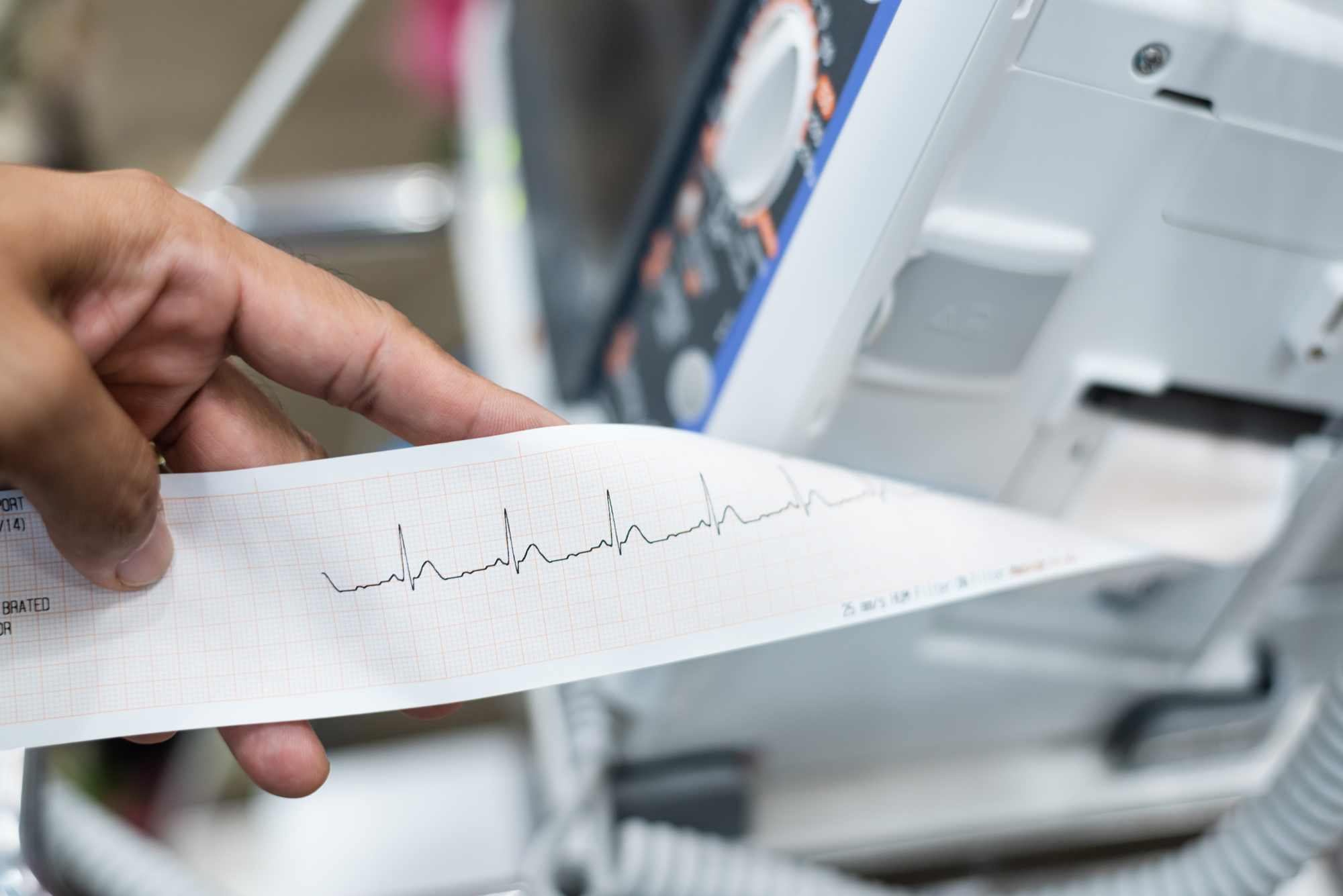EKG stands for electrocardiogram and can provide a considerable amount of information about the health and functioning of your heart. Before having an EKG, it’s important to let your doctor know what, if any, medications you’re taking or if you are allergic to adhesive tape.
So, what is an electrocardiogram, anyway?
What is an electrocardiogram?
An electrocardiogram is a quick and easy test used to evaluate your heart health. During the test, electrodes (small, plastic patches with adhesive backing) are placed at certain spots along the chest, arms and legs. These patches are connected to wires that are attached to an EKG machine. An EKG machine records the electrical signal from your heart and prints it out so your doctor can measure and interpret the electrical activity for certain heart conditions.
It records how fast your heart is beating, the rhythm of your heartbeats and the strength of the beats as well as the timing of the electrical impulses as they move through different chambers of the heart.
How does your heart work?
Your heart is a four-chamber muscle that pumps blood to the rest of your body. The top two chambers are called the atria, and the bottom two chambers are called the ventricles. Your body naturally produces an electrical charge strong enough to cause the heart muscle to contract. When this electrical charge becomes weak or off, it can significantly impact your overall health and prevent adequate blood flow throughout the body.
Who needs an EKG?
If you’re experiencing symptoms associated with potential heart problems, your doctor may recommend an EKG to determine if there is an underlying cause. Typical signs and symptoms include:
- Chest pain
- Heart palpitations (beating harder or faster than normal, or beating at an uneven rhythm)
- Breathing difficulties
- Unexplained and extreme tiredness and/or weakness
- Other heart symptoms your doctor finds concerning
What is an EKG used for?
Here are a few reasons your doctor may request an EKG:
- To get a baseline tracing of your heart’s function that can be used as a comparison for future EKGs
- To look for and identify the cause of your chest pain
- To evaluate issues that could be heart-related, like severe tiredness, shortness of breath, dizziness or fainting
- To identify or confirm an irregular heartbeat
- To help determine the overall health of your heart before surgery
- To help determine the overall health of your heart before and after heart surgery or cardiac catheterization
- To check on the function of an implanted pacemaker
- To help determine the overall health of your heart following a heart attack or infection of one or more of the heart valves
If you’re experiencing chest pain or believe you may be experiencing a heart attack or other heart-related issue, we urge you to visit your nearest urgent care immediately. Amory Urgent care is open for walk-in appointments 7 days a week from 8 a.m. – 7 p.m. and is equipped with onsite vital diagnostic technology, like electrocardiograms.

